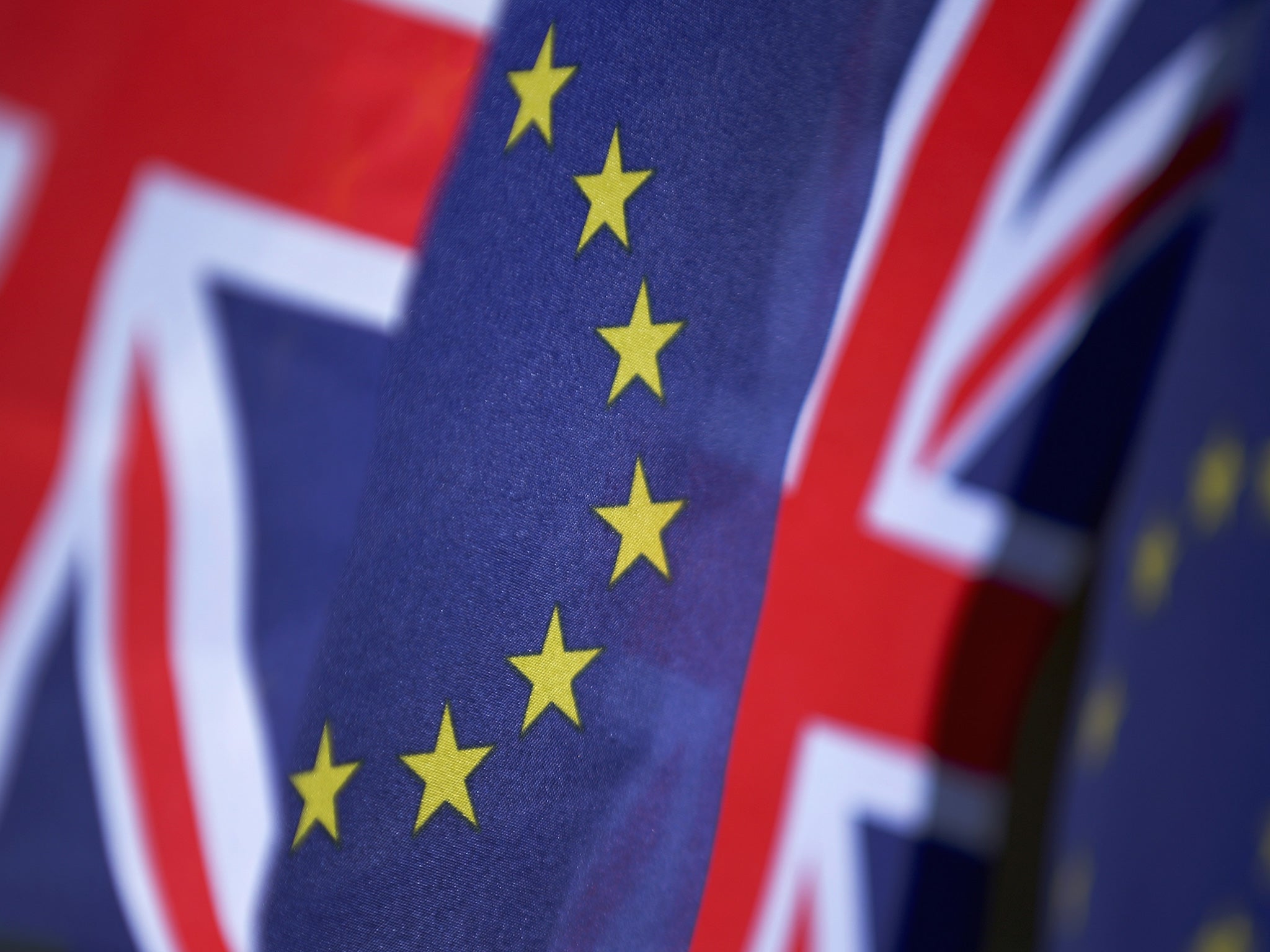Your support helps us to tell the story
From reproductive rights to climate change to Big Tech, The Independent is on the ground when the story is developing. Whether it's investigating the financials of Elon Musk's pro-Trump PAC or producing our latest documentary, 'The A Word', which shines a light on the American women fighting for reproductive rights, we know how important it is to parse out the facts from the messaging.
At such a critical moment in US history, we need reporters on the ground. Your donation allows us to keep sending journalists to speak to both sides of the story.
The Independent is trusted by Americans across the entire political spectrum. And unlike many other quality news outlets, we choose not to lock Americans out of our reporting and analysis with paywalls. We believe quality journalism should be available to everyone, paid for by those who can afford it.
Your support makes all the difference.Leaving the European Union would saddle British households with a large and recurring 'tax-like burden' costing the equivalent of a month's salary in four years, one of the world’s leading economic organisations has said.
The Organisation for Economic Co-operation and Development (OECD) said that UK workers would lose the equivalent of roughly a month’s pay before 2020 in the event of Brexit.
That penalty would continue to apply to British workers as long as the UK remained outside the bloc, it said.
“Brexit is like a tax, equivalent to missing out on about one month’s income within four years, but then it carries on to 2023, 2030,” Ángel Gurría, the OECD’s general secretary, told BBC Radio 4’s Today programme.
“There is a consistent loss: That tax is going to be continued to be paid by Britons over time. What they would have had in their pocket to spend, they would not have. Therefore it is as real as tax.”
The OECD will today publish details of how it believes slower economic growth as a result of leaving the bloc will affect household finances.
Treasury officials warned earlier this month that a voted for Brexit would do “permanent” damage to the British economy.
George Osborne claimed that leaving EU would, by 2030, leave British households £4,300 worse off. Overall GDP would be six per cent smaller by the end of the next decade than it would otherwise be, he added.
Polls suggest that British voters are increasingly convinced by the economic arguments for remaining in the EU – but are being won over to Brexit by non-economic arguments.
The stark warning by the OECD comes after the Leave camp enlisted US Republican presidential hopeful Ted Cruz in its campaign.
Writing in The Times newspaper Mr Cruz hit back at suggestions by Barack Obama that the UK would be at the “back of the queue” for a trade deal with America.
He said that if he became president the UK would be prioritised. Mr Cruz is currently trailing Donald Trump for the Republican nomination, however.

Join our commenting forum
Join thought-provoking conversations, follow other Independent readers and see their replies
Comments